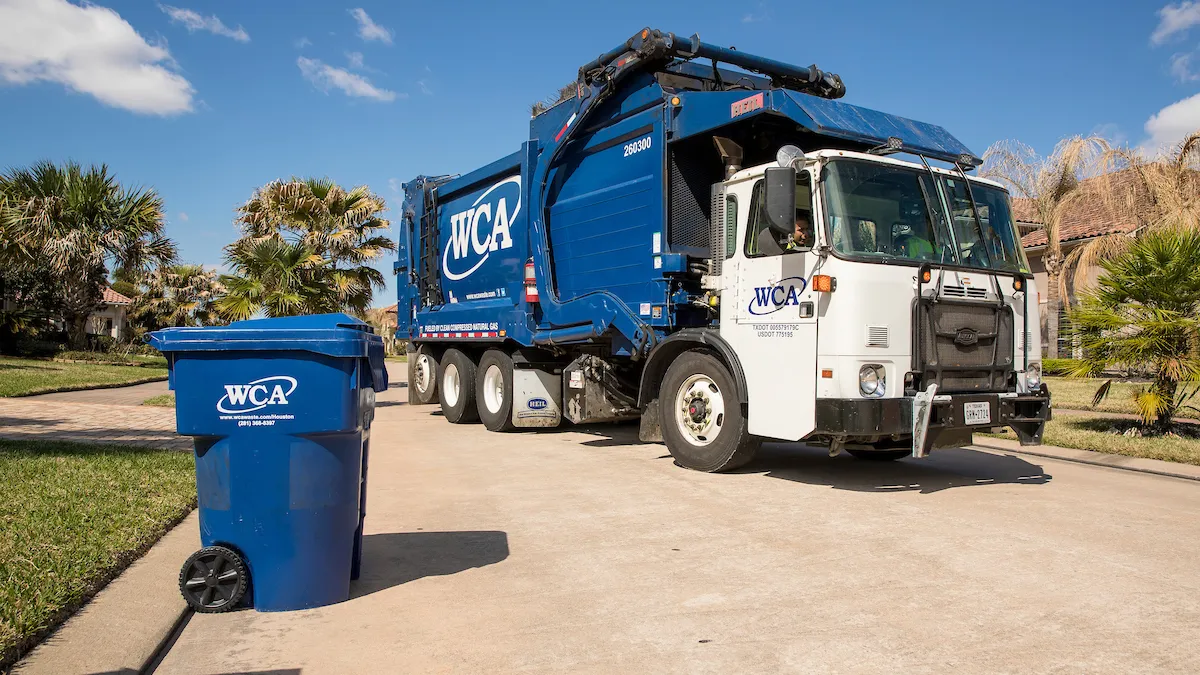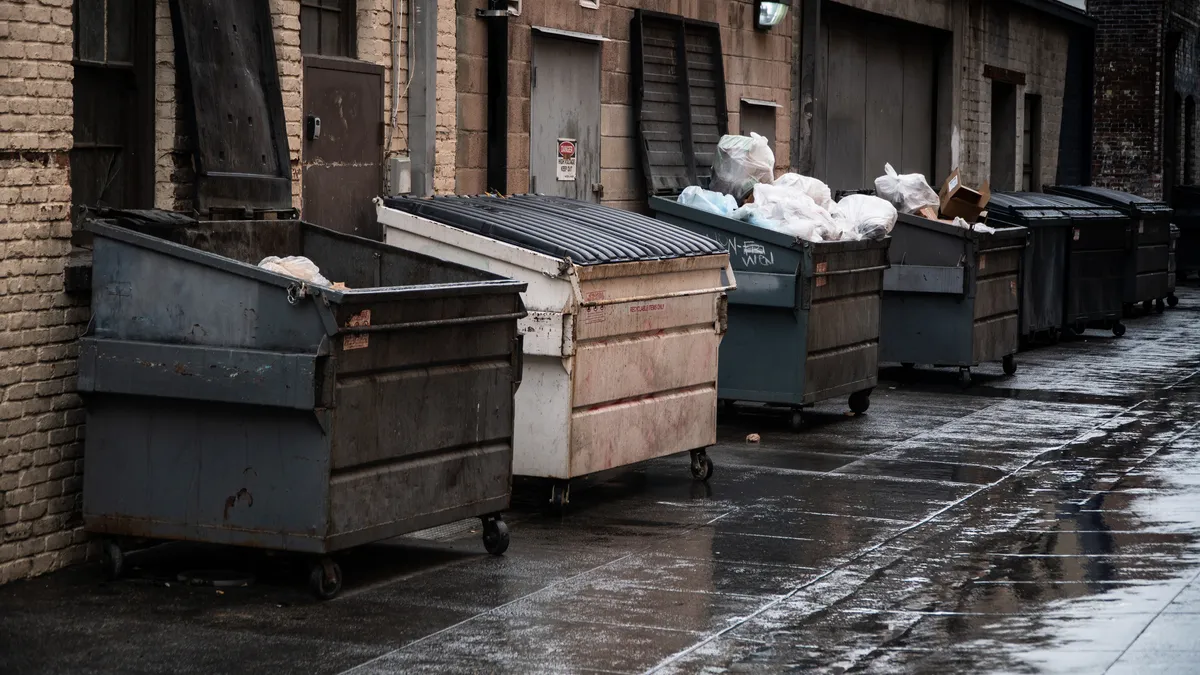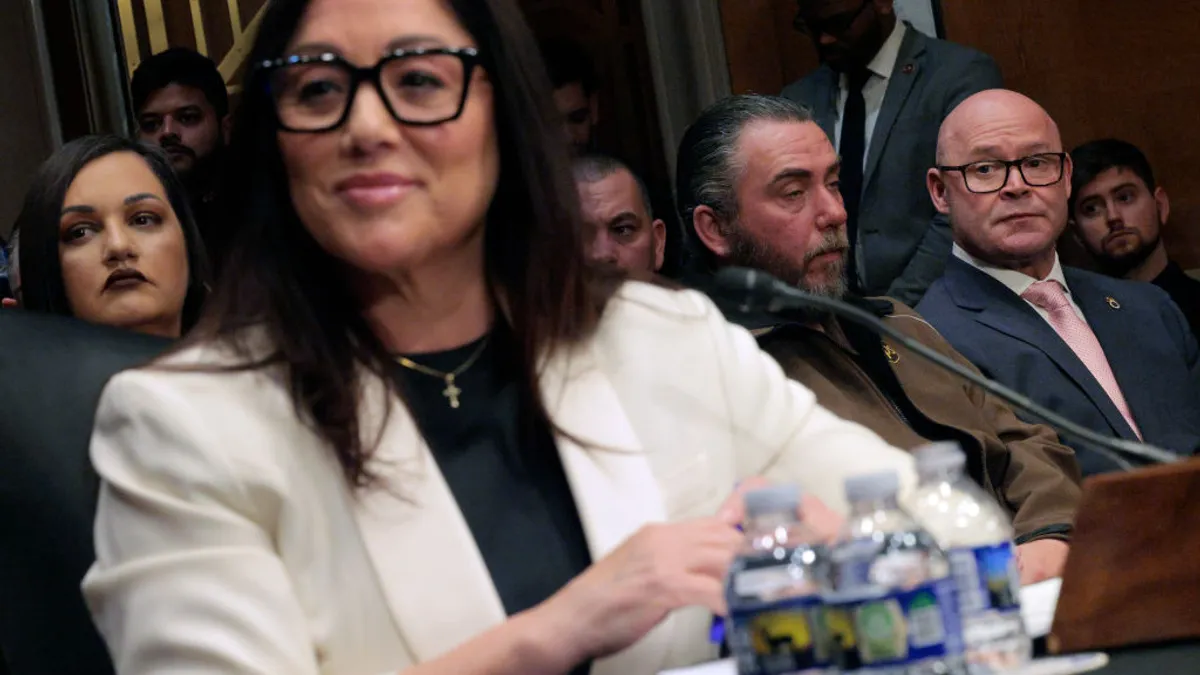Like many in the industry, WCA Waste Corporation has been actively expanding this year and sees room for further growth beyond its current 11-state footprint. Starting out with two deals in Missouri, WCA entered Kentucky over the summer, picked up a Texas company in September, and then expanded its Florida presence soon after.
Waste Dive recently caught up with Matt Spencer, WCA's senior vice president of operations, to learn more about the company's growth strategy and discuss other industry trends.
The following interview has been edited for clarity and annotated for context.
WASTE DIVE: Out of those five acquisitions this year, what was the most notable on your end?
MATT SPENCER: I would say Kentucky, Florida and Houston all had a lot of relevance to them, and I think all bring their own set of importance. Certainly with Orlando and Houston we're in pretty robust economies where they're growing, but they're in existing footprints of our business. Kentucky is a new market for us, so that brings a new set of challenges.
Spencer later noted that the Kentucky market was also appealing because it allowed for vertical integration. Plus, some of WCA's management team had worked there in previous jobs.
What does WCA look at when you consider adding a new state? What are some of the ideal factors?
SPENCER: So one of the things that we look at is, would we be vertically integrated in that market? That doesn't necessarily always mean that we will or that we won't, but that's certainly something that we take a look at. And then it's really the durability and sustainability of the business that we're looking at. Then I would say, three, what potential opportunities do we see by planting a flag in that new market, to grow organically or through acquisition?
It sounds like plenty of runway ahead? We can expect more deals?
SPENCER: Absolutely. We're definitely in growth mode through acquisition and organic.
Do you see that mainly being smaller tuck-ins or could there be larger deals in the future?
SPENCER: I think it just depends. Certainly tuck-ins are something that we're always looking at, but we're interested in both.
In May, CEO Bill Caesar wrote a piece called "What's Wrong With Recycling" that outlined the economic factors being driven in part by China's scrap import policies and explained to customers why costs would need to increase, concluding that, "Although the convenience of residential recycling is attractive to consumers, it has to make economic sense for companies or local governments to continue providing it. No one is happy about the situation we find ourselves in today, but recycling that is not economically grounded is just not sustainable."
How has that process been going with talking to customers, particularly some of these municipal contracts? Are they amenable to new price models or is it going to take some more time?
SPENCER: I would say some very much so, some not as much. In some, I think we'll be able to provide a bridge and get them there over time. So I think everybody is starting to grasp what's happening and it's just working with our customers and our municipalities to help educate them on what the cost structure is.
Would you say WCA's recycling business is still in stabilization mode, trying to make it work with what you have, or is there room to grow revenue from recycling in the future?
SPENCER: We have two recycling facilities. There is still potentially some opportunity for us to bring volume in, but we're more or less trying to manage what we have.
What labor trends are you seeing in the market? Has anything been successful in terms of retention or recruitment that you think is unique from other companies?
SPENCER: We're doing a lot of things that others are doing. I would say from the recruitment side one thing that we've been very focused on internally is employee engagement and employee retention. Focusing on our front line leadership and providing them training, so they're equipped to provide that atmosphere of an employee-centric company so we can retain those great employees. From a pure recruiting standpoint, we're doing a lot of the things that the other companies are doing.
Does that include assessing wage increases regionally as needed, retention bonuses, or anything along those lines?
SPENCER: Absolutely. We have done wage increases in the organization. We're constantly doing analysis on what each market, what their wages look like for comparable positions. We have made adjustments as we've gone throughout the year.
What's the pitch for why someone should come work for WCA over another company in the industry?
SPENCER: It really goes back to employee engagement. It's a critical focus for us from the top of the organization and we've invested a lot of time and resources again, into our management team, our front-line leadership team. [We're] focusing on training and what it takes to develop and coach our employees and what we can do to help retain them. I really believe strongly that we are an employee-focused organization ... That's what I would say separates us from other companies.
In your landfill business, what are some of the key issues that are top of mind for WCA right now?
SPENCER: I think employee retention is critical in the landfills as well. Yes, it's hard to find drivers and retain drivers, but there's challenges on the operator side. With a strong and robust economy, our team members have choices. I would say that's our biggest challenge, same as on the hauling.
We focus on the drivers first, I think, but mechanics and landfill operators have equal challenges.






















